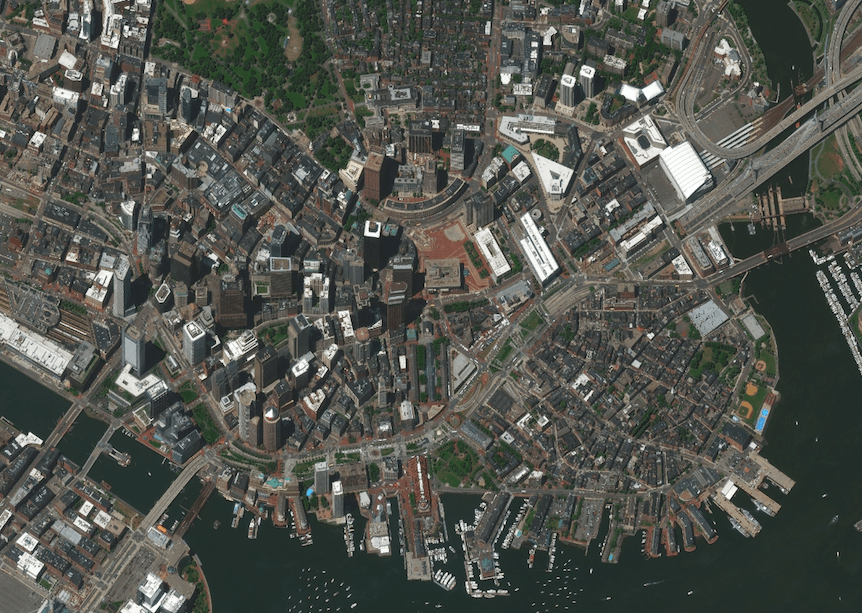In an era where technology is rapidly reshaping industries, the collaboration between DigitalGlobe, CosmiQ Works, and NVIDIA to launch the SpaceNet satellite imagery repository stands as a transformative initiative. By leveraging the power of cloud computing through Amazon Web Services (AWS), this open-data project not only aims to enhance image analysis tools but also seeks to democratize access to vast amounts of satellite imagery. This is a significant step forward for researchers, developers, and organizations involved in cutting-edge image analytics.
The Rise of Satellite Imaging
With the growing proliferation of CubeSats, drones, and advanced imaging satellites, the amount of data we collect is staggering. The capabilities of these technologies have surged, generating petabytes of imaging data that, until now, were often siloed and underutilized. The potential applications span a wide range of fields such as environmental monitoring, disaster response, and urban planning, each of which can significantly benefit from enhanced image analytics.
What Is SpaceNet?
SpaceNet serves as a vast repository aimed at providing researchers with curated datasets that can be utilized for innovation in the realm of machine learning and computer vision. To date, DigitalGlobe has made available over 200,000 building footprints in Rio de Janeiro. In the long run, the repository will encompass over 60 million labeled high-resolution images. This wealth of data is not just a raw input; it is a foundational element for training new algorithms and building smarter analytical tools.
The Role of Advanced Technologies
- Machine Learning & AI: The efficiency of machine learning algorithms has skyrocketed as training times have shortened significantly. What once took years can now be accomplished in mere hours due to improvements in processing capabilities and algorithmic efficiency.
- Open-Source Tools: NVIDIA’s DIGITS deep learning tool is one such example that researchers can utilize to tap into the massive SpaceNet data corpus, creating powerful geospatial applications.
- Collaboration: The partnership with CosmiQ Works, affiliated with In-Q-Tel, indicates a purposeful alignment with intelligence and security applications, enabling innovative methods for understanding complex visual data.
Real-World Applications of SpaceNet Data
The impact of the SpaceNet initiative transcends the realms of academia, finding applications in diverse sectors:
- Environmental Monitoring: Governments and organizations are utilizing satellite imagery to assess deforestation, track wildlife, and manage natural resources efficiently.
- Search and Rescue Operations: SpaceNet data can provide crucial insights for locating missing vessels or aircraft, much like the efforts to find Malaysia Airlines Flight 370.
- Urban Development: By understanding city infrastructure through high-quality imagery, planners can enhance public services and infrastructure developments more effectively.
The Future Ahead
As organizations continue to recognize the importance of high-quality, labeled datasets, the SpaceNet initiative is poised to accelerate advancements in AI and imaging technology. The commitment from DigitalGlobe, NVIDIA, and CosmiQ Works signals a shared vision of smart, data-driven decision-making in numerous fields.
At fxis.ai, we believe that such advancements are crucial for the future of AI, as they enable more comprehensive and effective solutions. Our team is continually exploring new methodologies to push the envelope in artificial intelligence, ensuring that our clients benefit from the latest technological innovations.
Conclusion
The launch of SpaceNet is a game-changer in the landscape of satellite imaging and analysis. By making vast repositories of data accessible and usable, it presents a unique opportunity for both public and private sectors to harness the power of image analysis in meaningful ways. As we continue to witness rapid advancements in AI and machine learning, the potential for innovative applications seems limitless. For those engaged in the fields of data science, remote sensing, or even urban planning, the benefits derived from the SpaceNet repository are not just theoretical – they are an invitation to participate in a new era of technological advancement.
For more insights, updates, or to collaborate on AI development projects, stay connected with fxis.ai.

